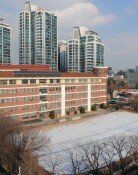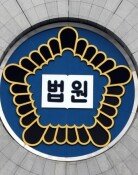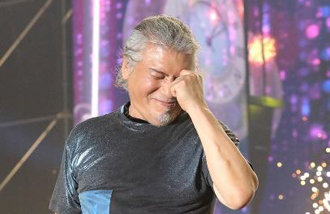Civic group demands disbandment of progressive party
Civic group demands disbandment of progressive party
Posted May. 17, 2012 05:42,
A right-wing civic activist group on Wednesday submitted a petition to the Justice Ministry for the disbandment of the minor opposition United Progressive Party, which is under fire for vote-rigging and violence scandals. Hwalbindan asked the ministry to file a suit with the Constitutional Court to disband the party in accordance with the Constitution.
The group claimed in the petition that the purpose, planks and activities of the party, which champions "people`s democracy" and Korean reunification under a federal system, violates the basic democratic order of Korea.
"The government should file a suit with the Constitutional Court for the party`s disbandment under constitutional procedures," the group said. "If the ministry avoids the petition even if the party meets the requirements for disbandment, we will accuse the president, prime minister and justice minister of dereliction of duty."
Constitutional experts are cautious over if the party`s illegal practices satisfy the requirements for disbandment. Despite undemocratic elements in the party`s operation, disbandment of a political party should be approached carefully to avoid undermining the party democracy system.
"The system of disbandment of political parties was introduced in Germany as a backlash against the Nazi Party, which actively trampled on social justice and democracy. Korea also embraced the system into its constitution," said Chang Young-soo, a law professor at Korea University. "The constitutional clause should be applied very carefully because if the system is abused, it could be used to oppress opposition parties."
Je Seong-ho, a law professor at ChungAng University, added, "While the United Progressive Party has shown a few tendencies against our country and system, disbanding the party won`t be easy considering the political topography and diversity of today`s Korea."
Calls are growing for the party`s lawmakers elected through the proportional representation system to be expelled from the National Assembly if they refuse to resign.
Hwang Woo-yea, the new chairman of the ruling Saenuri Party, ignited the argument by demanding a legal review of their entry into parliament. Motions for their expulsion must go through the National Assembly`s ethics committee and main session, in which a two-thirds vote by registered lawmakers is needed.
This scenario is unlikely, however, as the main opposition Democratic United Party is seeking to form an alliance with other opposition parties ahead of the December presidential election.
jhk85@donga.com dnsp@donga.com
Headline News
- S. Korea, US agree on defense const sharing-plan US presidential election
- Medical school quota discussions spark confusion 40 days before exam
- Zuckerberg surpasses Bezos to become world’s second richest person
- Son excluded from October national team due to thigh injury
- Ruing and opposition leaders launch campaigns ahead of by-election







